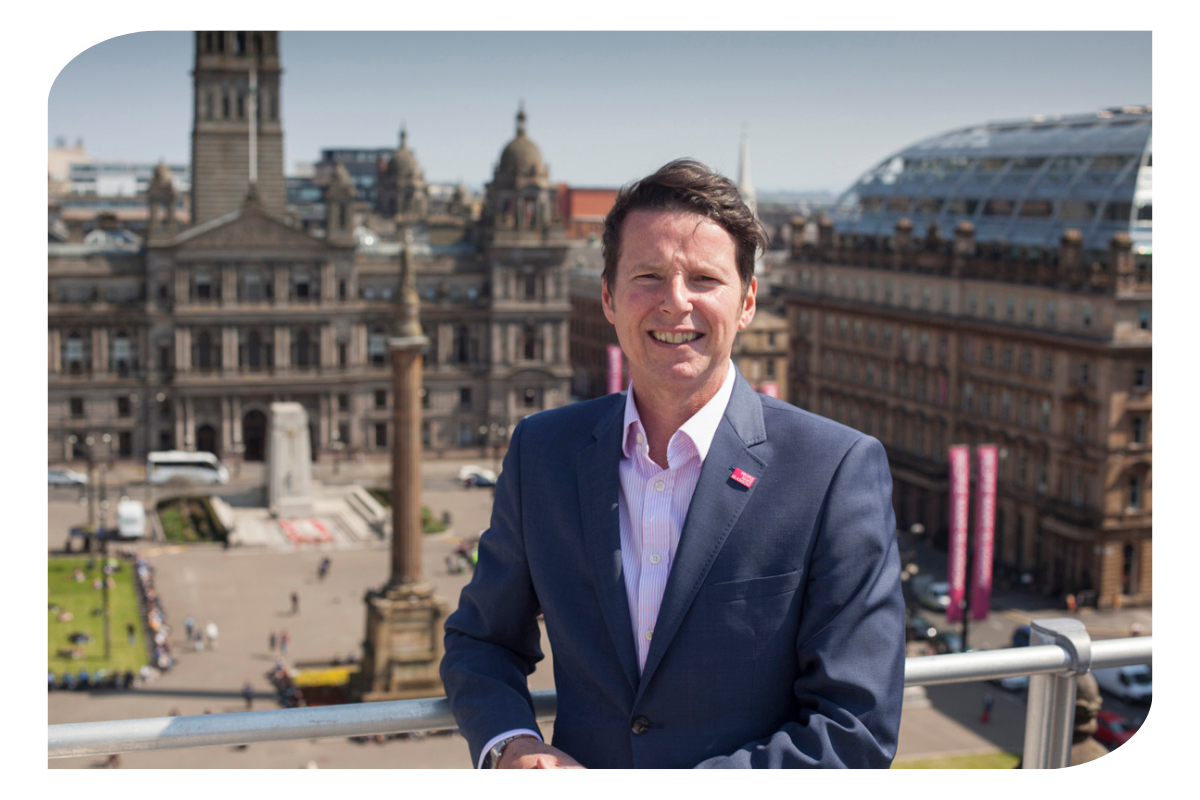
15 Feb 2023
By Richard Muir, Deputy Chief Executive of Glasgow Chamber of Commerce
Adam Smith is often dubbed the father of modern economics and his ideas and principles still hold great relevance for Scottish businesses today. Smith's central thesis, as outlined in his seminal work "The Wealth of Nations" was that the invisible hand of the market would guide individuals and businesses to make decisions that would benefit society as a whole. This idea continues to influence business practices in Scotland and around the world.
Smith's emphasis on the importance of education and the cultivation of human capital is also of great relevance to Scottish businesses. The ability to adapt and evolve in the face of changing economic conditions is critical to long-term success, and a highly educated and skilled workforce is key to achieving this goal.
Smith himself benefited greatly from education. The University of Glasgow is proud of being his intellectual home. He was both a student and professor at the university, and he returned toward the end of his career as Rector. The University of Glasgow Adam Smith Business School is marking the 300th anniversary of his birth with a year-long celebration of his life, work and influence.
A range of tercentenary events are already underway, organised by the University of Glasgow and by the Adam Smith Business School. Several events are also in conjunction with the Chamber, whose founding figures were deeply influenced by Smith. The Chamber’s founding chairman Patrick Colquhoun, who was involved its creation in 1783, met Smith.
The flagship celebrations will be on Tercentenary Week, from 5-10 June, in partnership with the Adam Smith Global Foundation and Panmure House in Edinburgh, where Smith died in 1790. Keynote speakers will include Gita Gopinath, Deputy Managing Director of the IMF; Deirdre Nansen McCloskey, Distinguished Professor of Economics at University of Illinois and Professor Sir Angus Deaton, Nobel Laureate at Princeton and author Robert Peston.
Professor Graeme Roy, a professor of economics, at University of Glasgow’s Adam Smith Business School, says Smith’s ideas are as relevant today as they were in the 18th Century:
“What Smith was speaking and writing about is still so influential and has real meaning for our times. He spoke about the importance of commerce and trade, and the value of markets and their propensity to do good for wider society. He examined in detail the moral issues of his day, and they still resonate with us in the 21st century”
Smith, I’m sure, would have approved of the major conference held on Friday ‘Britain’s Northern Superpower’ – Building a Greater Glasgow organised by the Founder of ‘Our Scottish Future’ the Rt Hon Gordon Brown, former UK Prime Minister and Glasgow Chamber of Commerce. Speakers included Lord Sainsbury, founder of the Centre for Cities, Councillor Susan Aitken, Leader of Glasgow City Council and CBI Director-General Tony Danker.
There was much discussion about many of Glasgow’s strengths such as high-value sectors, firms, skills and business investment in the city region as well as the challenges facing business and the city. The speakers agreed that the ambition and potential is here, through innovation in life sciences, education, and other future high-growth, global markets. Tony Danker highlighted examples of successful businesses and clusters in Glasgow including the space sector which is building a global reputation and receiving the backing of anchor institutions. He told the story of Craig Clark – the Founder of Clyde Space. There was next to no space sector in Glasgow when Craig started out and the business and sector has grown organically. And, today, Glasgow’s businesses provide critical components to the UK’s space and satellite industry, making this a cluster in its own right but also a valuable connection between Glasgow and other regions.
While we celebrate the tercentenary commemoration of The Father of Economics and inspire renewed discussion about Smith’s ideas, let’s also consider how his ideas from 300 years ago can help us in the business world answer some of the biggest challenges we face today.
This article was first published in The Herald on Wednesday 15 February 2023